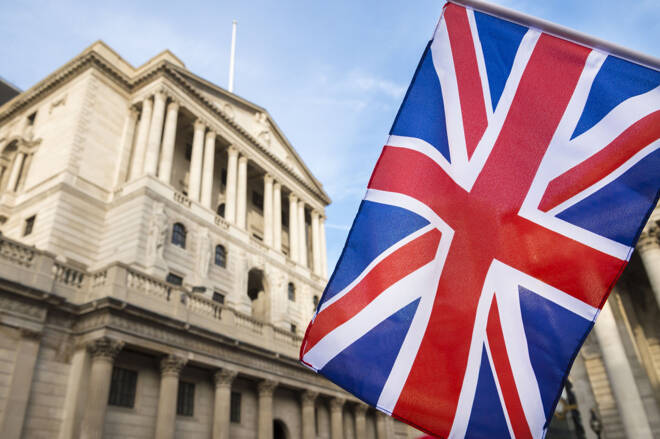Advertisement
Advertisement
UK Economy Avoids a Contraction to Fuel Hawkish BoE Talk
By:
It was a busy start to the UK session, with UK economic data easing immediate fears of a UK recession. BoE chatter is up next.
It was a busy start to the UK session. The UK economy was in the spotlight following Wednesday’s Treasury Select Committee Hearing on the Bank of England Monetary Policy Report for February.
This morning, the key economic indicators included prelim Q4 GDP numbers, industrial and manufacturing production, and trade data for December.
In Q4, the UK economy stalled following a 0.2% contraction in Q3. Economists forecast the UK economy to flat line in Q4. Year-over-year, the economy expanded by 0.4% versus 1.9% growth in Q3. Economists forecast the economy to grow by 0.4%. However, the economy contracted by 0.5% in December versus a forecasted 0.3% contraction.
According to the ONS,
- The services sector slowed to flat output in the quarter, while a 0.2% fall in the production sector offset 0.3% growth in the construction sector.
- A decline in international trade flows offset household expenditure, government expenditure, and gross fixed capital formation growth.
- Compared with Q4 2021, the implied GDP deflator increased by 6.6%, reflecting higher cost pressures on UK households.
- In 2022, the economy grew by 4.0%, following a 7.6% rise in 2021.
While the focus was on the GDP numbers, manufacturing and industrial production beat forecasts. Industrial production increased by 0.3% in December versus a forecasted 0.2% decline. Manufacturing production stalled, beating a forecasted 0.2% decline.
However, trade figures were less impressive. The UK trade deficit widened from £14.66 billion to £19.27 billion, with the non-EU trade deficit widening from £3.49 billion to £7.48 billion.
In November, the Bank of England warned the UK was facing its lengthiest recession on record. Today’s numbers gave the markets an early litmus test, with the UK economy avoiding a second quarterly contraction.
The numbers could incentivise the BoE to make more aggressive policy moves to curb wage growth and bring inflation to target.
On Thursday, Chief Economist Huw Pill pointed out that the Bank must tackle upside inflation risks despite an extended period of weakness in the UK economy. Monetary Policy Committee Member Jonathan Haskel took a more hawkish line, favoring more forceful action.
GBP/USD Response to Q4 GDP Report
Before the GDP report, the GBP/USD rose to an early high of $1.21287 before falling to a low of $1.20897.
However, in response to the GDP report, the GBP/USD fell to a low of $1.20904 before rising to a high of $1.21156.
At the time of writing, the GBP/USD was down 0.13% to $1.21044.
Next Up
With Q4 economic indicators in the spotlight, the markets should also consider Monetary Policy Committee Member chatter. Bank of England Chief Economist Huw Pill will speak today. Today’s numbers may dictate Huw Pill’s stance on monetary policy.
On Monday, Huw Pill spoke about the Bank’s willingness to do more to bring inflation to target. Pill reportedly said,
“I do have a high degree of confidence (about getting inflation to target) because we know what we’re going to do. We’ve done a lot to achieve it, we’re prepared to do more as necessary to ensure that we achieve it sustainably.”
It is a quiet day on the US economic calendar. Prelim Michigan Consumer Sentiment figures for February will draw interest. While the headline number will influence, investors should consider the sub-components, including the Inflation Expectations Index.
FOMC member chatter will also draw interest, with FOMC member Waller speaking late in the session.
About the Author
Bob Masonauthor
With over 28 years of experience in the financial industry, Bob has worked with various global rating agencies and multinational banks. Currently he is covering currencies, commodities, alternative asset classes and global equities, focusing mostly on European and Asian markets.
Advertisement
